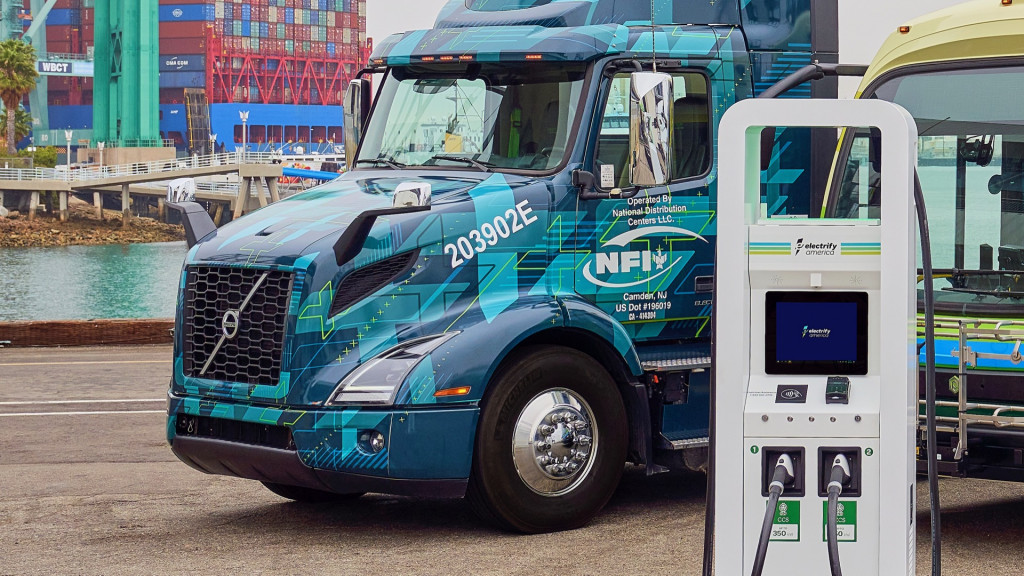California last week announced approval of a $1.4 billion three-year infrastructure push to meet the state's ambitious goals for EVs and hydrogen fuel-cell vehicles.
Most of the funding in the 2021-2023 plan goes to charging infrastructure, with $314 million designated for light-duty vehicle charging and $690 million for medium-duty and heavy-duty zero-emission vehicle infrastructure, according to a press release from the California Energy Commission (CEC). The latter includes funding for both battery-electric and fuel-cell commercial-truck infrastructure.
In addition, hydrogen fueling infrastructure gets a separate $77 million allocation. The plan also includes $25 million for "zero-and near-zero-carbon fuel production and supply." Other items include $244 million for zero-emission vehicle manufacturing and $15 million for workforce training and development.

Volvo VNR Electric and Electrify America charging station
The plan supports Governor Gavin Newsom's 2020 executive order requiring all new passenger-vehicle sales to be zero-emission (either battery-electric or fuel cell) by 2035. In June of this year the CEC said California would need nearly 1.2 million EV chargers by 2030 to meet that goal.
The investment plan follows other recent infrastructure projects, including a utility-based program that will add a claimed 38,000 charging stations across the state in five years. Megawatt-level charging for electric commercial trucks may also be part of California's future infrastructure plans. In May, startup WattEV announced plans for a solar-supplemented EV truck stop in Bakersfield, California, offer 4 megawatts of charging capacity initially and later expanding to 25 MW.
California's announcement follows the signing of a federal infrastructure bill by President Biden. That bill includes $7.5 billion for EV infrastructure on the way toward 500,000 charging stations. For the entire country, that seems like a small start.












